General Secretary To Lam, on behalf of the Politburo, has just signed and issued Resolution No. 72-NQ/TW "On a number of breakthrough solutions to strengthen the protection, care and improvement of people's health".
 |
| According to a World Bank report, hospital and tuition fees currently account for 30-35% of total expenditures of poor households in Vietnam. |
One of the notable contents of this resolution, which has received special attention and high expectations from the people, is that from 2026, people will be able to have regular health check-ups or free screening at least once a year, and have an electronic health book created to manage health over the life cycle, gradually reducing the burden of medical costs.
By 2030, people will be exempted from basic hospital fees within the scope of health insurance benefits according to the roadmap.
Currently, health insurance participants are responsible for co-paying 11-13% of the total cost of medical examination and treatment, while the health insurance fund covers an average of 87-89%. If the basic hospital fee exemption policy is implemented, this will be a big step forward in reducing the financial burden on people, especially vulnerable groups in society.
According to a World Bank report, hospital and tuition fees currently account for 30-35% of total expenditures of poor households in Vietnam. In order to realize the above goal, the Ministry of Health is urgently developing a draft project on exempting hospital fees for all people and aims to complete it by September this year.
Professor, Dr. Tran Van Thuan, Deputy Minister of Health, has just chaired a meeting with specialized departments and offices to generally deploy the project development.
This is one of the most important contents to concretize Resolution No. 72 of the Politburo on breakthrough solutions in public health care, meeting the requirements of national development in the new era.
The draft project will specify the objectives, scope, subjects, theoretical framework as well as refer to implementation experiences from a number of countries around the world. The policy design will be carefully considered to ensure feasibility, sustainability and suitability to domestic socio-economic conditions.
Deputy Minister Tran Van Thuan assigned the Health Insurance Department to coordinate with relevant units to urgently complete the draft project to submit to the Ministry's leaders.
At the same time, the Ministry of Health will also advise on the establishment of a Drafting Committee, with the participation of experts, scientists, representatives of relevant ministries, branches and international organizations in Vietnam.
Departments, divisions, schools and institutes will be assigned to advise and complete component reports on domestic hospital fee payment practices, medical cost and service models in other countries, review the current legal framework and assess policy impacts when the project is issued.
The Deputy Minister of Health affirmed that the health sector always adheres to the motto "caring for and protecting people's health is above all, first and foremost". Therefore, the project will be built according to a specific roadmap, calculated on each professional level, scope and scale of implementation.
The goal is to gradually reduce medical costs that people have to pay, moving towards free hospital fees for all people in the 2030-2035 period, while ensuring that everyone has a health insurance card to access, participate in and fully enjoy basic medical examination and treatment services.
Along with the free hospital policy, Vietnam is also promoting digital transformation in the health sector. According to the orientation for the period 2025 - 2030, the health sector will build a centralized health database, gradually forming a national database, allowing data sharing and analysis to serve both medical examination and treatment as well as management, research and policy making.
The goal is to form a complete digital health ecosystem by 2030, applying technology in insurance management and medical record tracking, so that every citizen owns a digital health book.
However, the digital transformation process in healthcare is currently facing many major challenges such as a shortage of human resources, the lack of a comprehensive legal framework for electronic transactions in healthcare, limitations in financial mechanisms, and inadequacies in technological infrastructure, especially at the grassroots healthcare level.
According to Dr. Ha Anh Duc, Director of the Department of Medical Examination and Treatment Management, Ministry of Health, to achieve the set goals, the health sector needs to strengthen its leadership role in implementing the digital transformation strategy, while perfecting the legal framework related to information technology and health insurance, investing in technology infrastructure, centralized data management systems and promoting public-private partnership in sharing health data.
“This is the key solution for Vietnamese healthcare to take full advantage of artificial intelligence (AI), bringing practical benefits to patients and the entire healthcare system,” Mr. Ha Anh Duc emphasized.
Simultaneously promoting two major goals: free basic hospital fees and comprehensive digital transformation in the health sector not only contributes to improving the quality of medical examination and treatment, but also demonstrates the strong commitment of the Party and State in building a fair, modern and humane health system.
Source: https://baodautu.vn/tang-toc-xay-de-an-mien-vien-phi-toan-dan-d384282.html



![[Photo] Prime Minister Pham Minh Chinh attends the groundbreaking ceremony of two key projects in Hai Phong city](https://vphoto.vietnam.vn/thumb/1200x675/vietnam/resource/IMAGE/2025/9/27/6adba56d5d94403093a074ac6496ec9d)







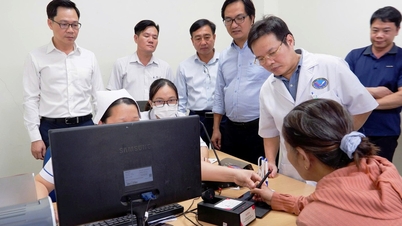



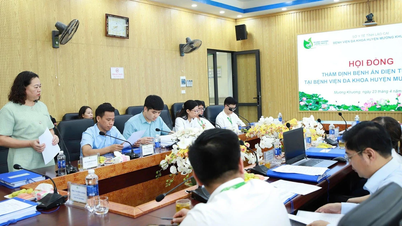






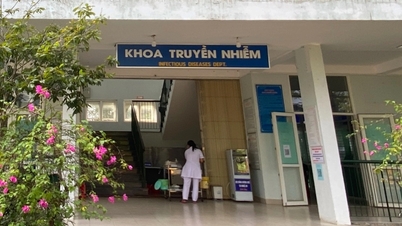











































![[Live] Vietnam Tourism Awards Ceremony 2025](https://vphoto.vietnam.vn/thumb/402x226/vietnam/resource/IMAGE/2025/9/27/001400e8ad9a46e9a3651a828cc6834d)














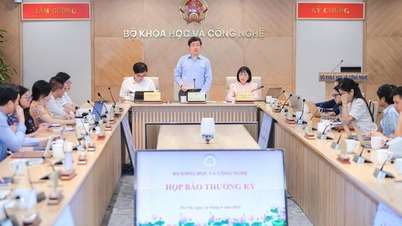

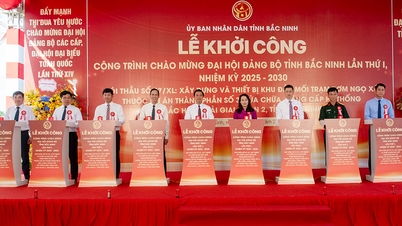








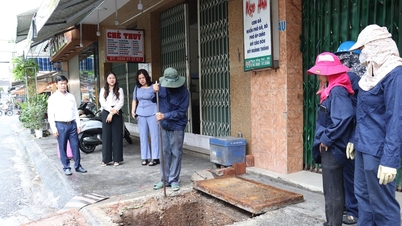















Comment (0)